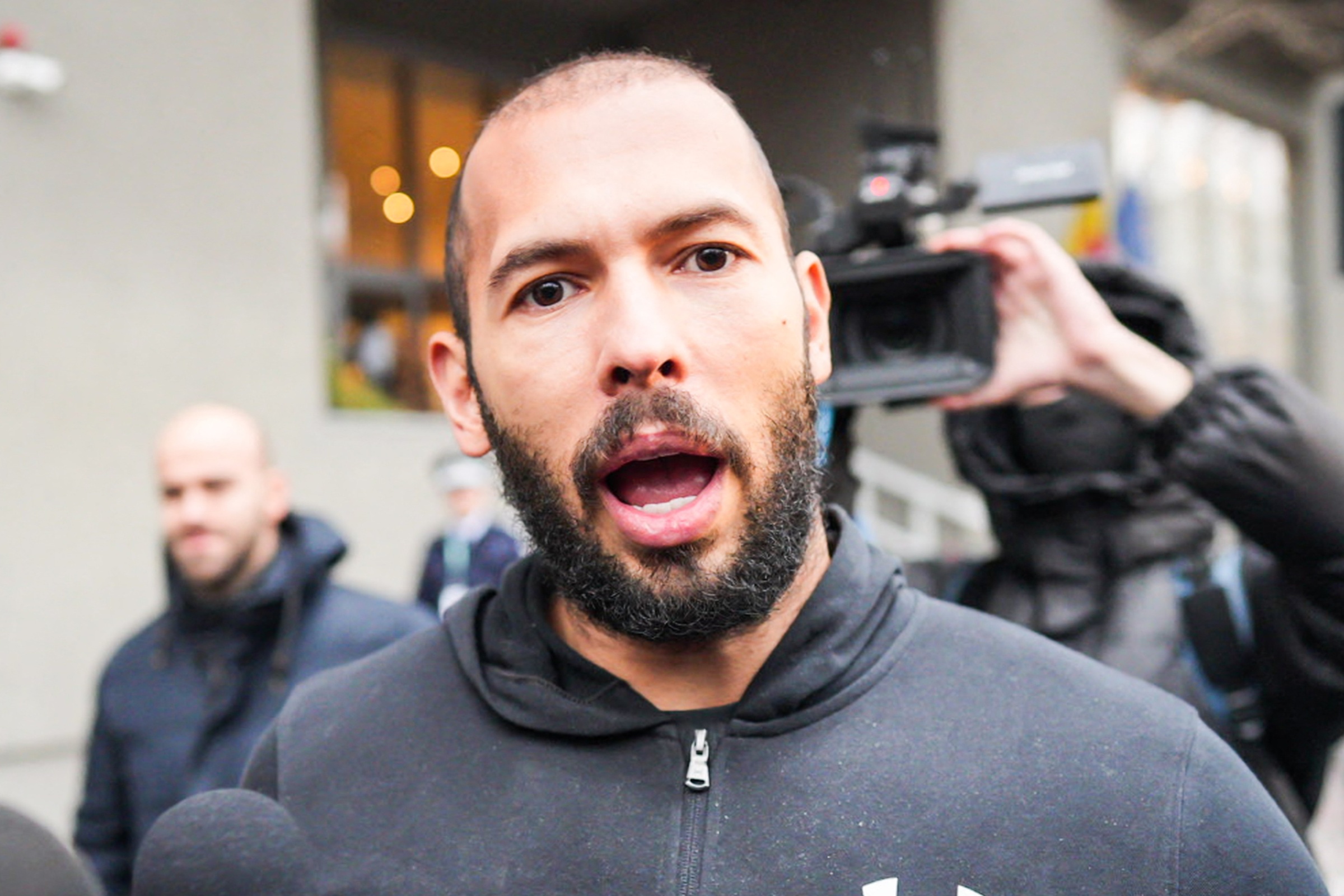In recent years, Andrew Tate has become a controversial figure, often sparking debates on social media and beyond. As a former kickboxer, entrepreneur, and influencer, Tate's statements and lifestyle choices have led many to question his views on race and racism. This article aims to delve deep into the allegations of racism surrounding Andrew Tate, examining his public persona, statements, and the broader context of his views. By the end of this exploration, we will provide a clearer picture of whether Andrew Tate can be classified as racist.
This analysis will also consider the implications of his statements and actions within the realm of societal norms and values. Understanding the context of Tate's remarks is crucial in evaluating their impact and significance. Furthermore, we will explore how public perception has formed around Tate, influenced by both his supporters and detractors.
As we navigate through this topic, it is essential to approach it with an open mind, recognizing that discussions of race and racism can evoke strong emotions and varied interpretations. Our goal is to present a balanced, well-researched view on the subject matter, providing you with insights and evidence to form your own conclusions.
Table of Contents
- Biography of Andrew Tate
- Early Life and Career
- Public Statements and Controversies
- Social Media Reactions
- Analysis of His Views on Race
- Supporters and Critics
- Broader Context of Racism in Society
- Conclusion
Biography of Andrew Tate
Andrew Tate, born on December 1, 1987, in Washington, D.C., is a British-American former professional kickboxer, businessman, and social media influencer. He gained fame as a four-time world kickboxing champion and later transitioned into various business ventures, including online courses and memberships that focus on wealth creation and personal development.
Personal Data and Biodata
| Name | Andrew Tate |
|---|---|
| Date of Birth | December 1, 1987 |
| Nationality | British-American |
| Profession | Kickboxer, Entrepreneur, Influencer |
Early Life and Career
Andrew Tate grew up in a diverse environment, influenced by his American father, who was a chess international master, and his British mother. His upbringing instilled in him a competitive spirit and a drive for success. Tate began practicing kickboxing at a young age and quickly ascended to the top ranks in the sport.
After gaining recognition in kickboxing, Tate leveraged his fame to venture into business, promoting a lifestyle of wealth and success through social media. His transition from sports to entrepreneurship showcased his multifaceted skills and ambitions.
Public Statements and Controversies
One of the key elements in the debate surrounding Andrew Tate's alleged racism is his public statements. Over the years, Tate has made several controversial comments on various platforms. These statements have often been interpreted as racially insensitive or discriminatory.
- In various tweets and videos, Tate has made remarks about different ethnic groups, often framing them in a negative light.
- His comments about women and minorities have also drawn significant criticism, leading many to question his views on race and equality.
- Supporters argue that his statements are taken out of context and are part of a broader persona aimed at challenging societal norms.
Social Media Reactions
The rise of social media has amplified Andrew Tate's reach, allowing him to connect with millions of followers. However, it has also subjected him to intense scrutiny. Reactions to his statements have been polarized:
- Supporters praise Tate for his candidness and assertiveness, believing he speaks truths that others are afraid to address.
- Critics label him as a racist and misogynist, arguing that his comments perpetuate harmful stereotypes and contribute to societal division.
Analysis of His Views on Race
To determine whether Andrew Tate is racist, we must analyze his views in detail. Here are some key points to consider:
- Tate often emphasizes personal responsibility and self-determination, which some interpret as dismissive of systemic issues faced by marginalized communities.
- His remarks frequently lack nuance, leading to accusations that he oversimplifies complex social issues.
- In discussions about race, Tate tends to focus on individual experiences rather than acknowledging broader societal challenges.
Supporters and Critics
The divide between Tate's supporters and critics is stark. Supporters view him as a maverick who challenges conventional wisdom, while critics see him as a harmful influence promoting negative stereotypes.
Notable supporters include some individuals in the self-help and entrepreneurial space, who appreciate his emphasis on personal empowerment. On the other hand, prominent critics include activists and commentators who advocate for social justice and equality.
Broader Context of Racism in Society
Understanding Andrew Tate's views requires contextualizing them within the larger societal framework. Racism is a persistent issue that affects many aspects of life, including socioeconomic status, education, and health. Discussions about race often evoke strong emotions and highlight the need for sensitivity and understanding.
It is essential to recognize that while some individuals may express controversial opinions, these views must be examined critically against the backdrop of systemic inequality and historical injustices.
Conclusion
In conclusion, the question of whether Andrew Tate is racist is complex and multifaceted. While some of his statements may be construed as racially insensitive, others argue that he is merely expressing a contrarian viewpoint. Ultimately, it is up to individuals to assess his comments critically and determine their implications.
We encourage you to share your thoughts on this topic. What do you think about Andrew Tate's statements? Do you believe they reflect racist views, or are they taken out of context? Please leave a comment below, and don't hesitate to share this article with others who might be interested in the discussion.
Thank you for reading! We hope you found this analysis informative and thought-provoking. For more content like this, be sure to check out our other articles.
Article Recommendations
- Germania Insurance Amphitheater
- Short Positive Quotes About Life Challenges
- Charleston White Shot In Chicago


